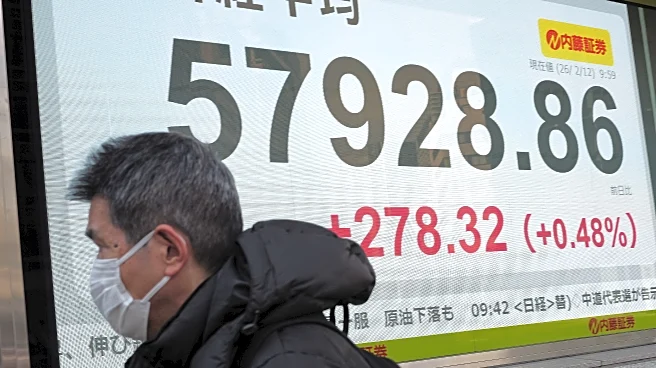Rapid Read • 7 min read
President Trump has announced an extension of the trade impasse between the U.S. and China, delaying the implementation of a 30 percent levy on Chinese imports until November 10. This decision provides a 90-day reprieve, allowing for continued discussions aimed at addressing trade imbalances. The U.S. faces a significant trade deficit with China, reported at $295.4 billion in 2024. The agricultural sector has been particularly affected, with China imposing tariffs of 10 to 15 percent on various U.S. farm products, including fruits, sorghum, beef, and soybeans. The suspension of Section 301 tariff exclusions by China has further impacted U.S. agricultural exports, leading to substantial losses for industries such as California nuts.
AD
The extension of the trade impasse and the imposition of tariffs have significant implications for the U.S. agricultural industry, which has already experienced substantial financial losses. The ongoing trade disputes could lead to increased prices for consumers and further strain on U.S. farmers. The agricultural sector, a major component of the U.S. economy, faces challenges in maintaining export levels and profitability. The situation underscores the broader economic impact of international trade policies and the need for resolution to prevent long-term damage to U.S. industries.
Negotiations between the U.S. and China are expected to continue, with the aim of addressing trade imbalances and reducing tariffs. The agricultural industry will be closely monitoring these discussions, as any agreements could alleviate the current financial pressures. Stakeholders, including farmers and industry leaders, may advocate for policy changes to support the sector and mitigate the impact of tariffs. The outcome of these negotiations will be crucial in determining the future of U.S.-China trade relations and the stability of the agricultural market.
AD
More Stories You Might Enjoy














